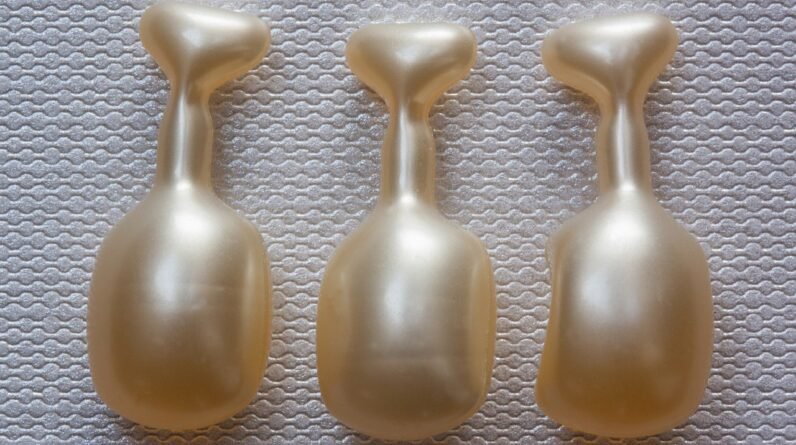
After completing radiation therapy, your body may experience various side effects, including skin damage and accelerated aging. However, there is a natural remedy that can help alleviate these concerns – antioxidants. This article explores the use of antioxidants after radiation therapy, focusing on their effectiveness in promoting skin health and reducing the signs of aging. By incorporating antioxidants into your post-treatment routine, you can support your body’s healing process and regain a healthy, youthful complexion. Discover the power of antioxidants and how they can benefit you after radiation therapy.
What are Antioxidants

This image is property of pixabay.com.
Definition
Antioxidants are compounds that help protect the cells in your body from damage caused by harmful molecules called free radicals. Free radicals can come from various sources like pollution, radiation, and even normal bodily processes like digestion. When free radicals build up in your body, they can cause oxidative stress, which has been linked to various health issues such as cancer, heart disease, and aging. Antioxidants work by neutralizing these free radicals, preventing them from causing damage to your cells.
Functions of Antioxidants
The primary function of antioxidants is to combat oxidative stress by neutralizing free radicals. They do this by donating an electron to the free radical, stabilizing it and preventing it from causing further damage. Antioxidants can also regenerate other antioxidants, ensuring a continuous supply of free radical fighters in your body. Additionally, some antioxidants have been shown to have anti-inflammatory properties, protecting your cells from inflammation-induced damage. Overall, antioxidants play a crucial role in maintaining the health and well-being of your cells, tissues, and organs.
Radiation Therapy and its Effects
Explanation of Radiation Therapy
Radiation therapy is a common treatment for cancer that uses high-energy radiation to target and destroy cancer cells. It works by damaging the DNA of the cancer cells, preventing them from dividing and growing. This treatment can be administered externally or internally, depending on the type and location of the cancer. Radiation therapy is often used in combination with surgery or chemotherapy to increase its effectiveness in eliminating cancer cells from the body.
Side Effects of Radiation Therapy
While radiation therapy is a valuable tool in cancer treatment, it can have some side effects. The most common side effects are fatigue, skin changes, hair loss in the treated area, and temporary inflammation. These side effects occur because radiation not only affects cancer cells but can also damage healthy cells in the surrounding area. The level and severity of side effects can vary depending on the type of cancer, the dosage of radiation, and individual factors. However, it is important to note that the side effects are usually temporary and will gradually improve after treatment.
Impact of Radiation Therapy on Antioxidant Levels

This image is property of pixabay.com.
How Radiation Therapy Affects Antioxidant Levels
Radiation therapy can have a significant impact on the levels of antioxidants in your body. Studies have shown that radiation exposure can deplete antioxidants, especially in the tissues directly exposed to the radiation. The high-energy radiation can create an excess of free radicals, overwhelming the antioxidant defense mechanisms and leading to an imbalance between free radicals and antioxidants. This imbalance can result in increased oxidative stress and potential damage to healthy cells.
Why Antioxidant Levels Decrease during Radiation Therapy
The decrease in antioxidant levels during radiation therapy can be attributed to multiple factors. First, the high levels of free radicals generated during radiation can overwhelm the antioxidant defense system, depleting the available antioxidants. Second, radiation therapy can also damage the tissues responsible for producing antioxidants, leading to a decreased production of these protective molecules. Lastly, the body’s increased metabolic demands during radiation therapy may divert resources away from the production and maintenance of antioxidants, further contributing to their depletion.
Importance of Antioxidants after Radiation Therapy

This image is property of pixabay.com.
Role of Antioxidants in Cellular Repair
After radiation therapy, your body undergoes a process of cellular repair in which damaged cells are repaired or replaced. Antioxidants play a crucial role in this repair process by protecting the newly formed cells from potential damage caused by residual free radicals. By neutralizing free radicals and reducing oxidative stress, antioxidants promote the healing and regeneration of healthy cells, ensuring optimal recovery after radiation therapy.
Benefits of Antioxidants in Minimizing Radiation Damage
In addition to aiding cellular repair, antioxidants offer several other benefits in minimizing radiation damage. They can help reduce inflammation in the treated area, relieving discomfort and promoting faster healing. Antioxidants also act as scavengers for harmful reactive oxygen species (ROS) generated by radiation therapy, preventing them from causing further damage to healthy tissues. Furthermore, studies have suggested that antioxidants may enhance the effectiveness of radiation therapy by sensitizing cancer cells to radiation-induced cell death. Overall, incorporating antioxidants into your post-radiation therapy regimen can help mitigate the side effects and improve your overall outcome.
Types of Antioxidants for Post-Radiation Therapy

Vitamin C
Vitamin C is a potent antioxidant that plays many vital roles in the body. It helps in collagen synthesis, wound healing, and boosting the immune system. This antioxidant can be easily obtained from various fruits and vegetables such as oranges, strawberries, bell peppers, and broccoli.
Vitamin E
Vitamin E is a fat-soluble antioxidant that protects cell membranes from oxidative damage. It is commonly found in foods like almonds, spinach, sunflower seeds, and avocados. Vitamin E can support immune function and help with skin healing after radiation therapy.

Beta-carotene
Beta-carotene is a precursor to vitamin A and acts as a powerful antioxidant in the body. It can be found in fruits and vegetables with a vibrant orange or yellow color, such as carrots, sweet potatoes, and mangoes. Beta-carotene is known for its ability to support eye health and boost the immune system.
Selenium
Selenium is a trace element that acts as a cofactor for various antioxidant enzymes in the body. It can be found in foods like Brazil nuts, seafood, eggs, and whole grains. Selenium plays a crucial role in protecting cells from oxidative damage and supporting thyroid function.
Zinc
Zinc is an essential mineral that plays a vital role in many enzymatic reactions in the body. It acts as a cofactor for antioxidant enzymes and helps maintain the integrity of cell membranes. Foods rich in zinc include oysters, beef, pumpkin seeds, and lentils.
Coenzyme Q10
Coenzyme Q10 is a naturally occurring antioxidant that is involved in cellular energy production. It also acts as an antioxidant, protecting cells from oxidative damage. While the body can produce Coenzyme Q10, its levels may decrease with age. Dietary sources of Coenzyme Q10 include fatty fish, organ meats, and nuts.
Natural Sources of Antioxidants
Foods Rich in Antioxidants
Incorporating a variety of fruits, vegetables, and whole grains into your diet is an excellent way to increase your antioxidant intake. Berries such as blueberries, strawberries, and raspberries are particularly rich in antioxidants. Green leafy vegetables like spinach and kale, along with colorful peppers, tomatoes, and citrus fruits, also provide a significant amount of antioxidants. Additionally, nuts, seeds, and legumes can contribute to your antioxidant intake.
Herbs and Spices with High Antioxidant Content
Alongside fruits and vegetables, herbs and spices also offer a concentrated source of antioxidants. Some herbs and spices known for their antioxidant properties include turmeric, cinnamon, ginger, oregano, and rosemary. Incorporating these flavorful ingredients into your meals can not only enhance the taste but also boost your antioxidant intake.
Supplements as Antioxidants
Considerations before Taking Antioxidant Supplements
While consuming antioxidants through a balanced diet is the ideal way to reap their benefits, antioxidant supplements are available for those who may need additional support. However, it is essential to consult with a healthcare professional before starting any antioxidant supplementation, especially if you are undergoing radiation therapy. They can assess your individual needs, potential interactions with other medications, and guide you in selecting the right type and dosage of antioxidant supplements.
Commonly Used Antioxidant Supplements
Some commonly used antioxidant supplements include vitamin C, vitamin E, and selenium. These supplements are available in various forms like tablets, capsules, and liquid extracts. However, it is crucial to choose high-quality supplements from reputable brands to ensure their effectiveness and safety. Always follow the recommended dosage provided by the manufacturer or your healthcare professional.
Use of Topical Antioxidants
Benefits of Applying Antioxidants Topically
Topical antioxidants offer a targeted approach to protect and nourish the skin after radiation therapy. They can help neutralize free radicals on the skin’s surface, preventing oxidative damage and minimizing inflammation. Topical antioxidants can also support collagen production, improve skin texture, and enhance overall skin health. Additionally, they can provide a soothing and moisturizing effect, relieving any post-radiation skin dryness, redness, or irritation.
Recommended Topical Antioxidants
Some commonly recommended topical antioxidants include vitamin C, vitamin E, green tea extract, and resveratrol. These antioxidants can be found in various skincare products such as serums, creams, and lotions. Look for products specifically formulated for post-radiation therapy or consult with a dermatologist to determine the best options for your skin type and condition.
Consulting with a Healthcare Professional
The Role of a Healthcare Professional
Consulting with a healthcare professional, such as a radiation oncologist or a registered dietitian, is essential when considering antioxidant therapy after radiation treatment. They can provide guidance based on your specific medical history, treatment plan, and individual needs. Healthcare professionals can assess potential interactions with other medications, help you understand the right timing and dosage of antioxidants, and monitor your progress throughout the recovery process.
Guidance for Choosing the Right Antioxidant Therapy
As every individual’s medical condition and treatment plan differ, it is crucial to receive personalized guidance when choosing the right antioxidant therapy. A healthcare professional can evaluate your nutritional needs, recommend specific antioxidants based on their potential benefits, and ensure they align with your overall treatment goals. They can also provide recommendations on natural food sources, supplements, and topical antioxidants, integrating them into a comprehensive post-radiation therapy plan.
Conclusion
In conclusion, antioxidants play a vital role in supporting cellular health and minimizing the damage caused by radiation therapy. By neutralizing free radicals and reducing oxidative stress, antioxidants aid in the repair and regeneration of healthy cells, facilitating a smooth recovery process. Incorporating antioxidant-rich foods, considering antioxidant supplements under professional guidance, and utilizing topical antioxidants can all contribute to optimizing your post-radiation therapy journey. Remember to consult with a healthcare professional to determine the best approach and ensure that you are giving your body the support it needs. By prioritizing antioxidants, you can enhance the healing process and promote your overall well-being after radiation therapy.







